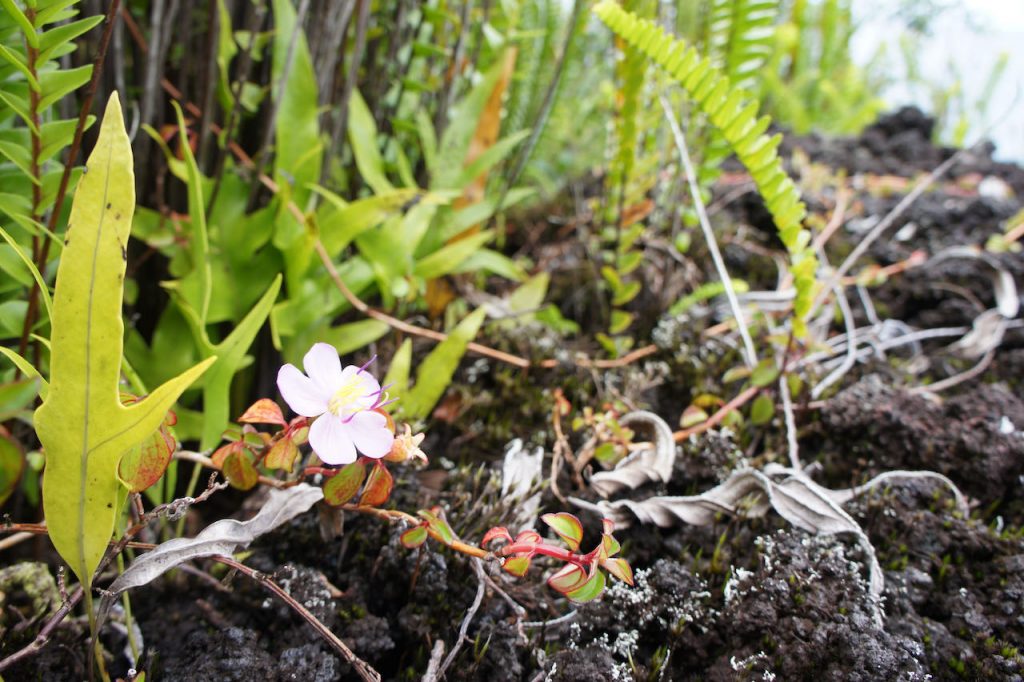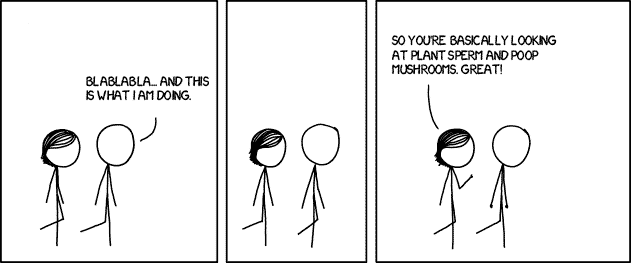Today is the International Day of Women and Girls in Science. It exists because, despite progresses, we still haven’t met gender equality in science1. I’d like to contribute moving forward in that direction with a tribute to the many Women in Science who have significantly impacted my (academic) life.
It started with my Biology teacher in middle school. She has inspired me in so many ways. I was the one entering the class room first to sit in the front row, to be sure to hear everything she would say. She is the one who triggered my passion for life sciences. She has also set the seed of the other passion that would grow later – research – with a sentence that I still remember. I understand better today what she meant. My experience in research has proved it nearly each day, and I repeat it exactly when I teach in high school and university. ☺️
In science, answering one question opens ten new ones.

School was easy for me. I didn’t have to work so much to get good marks. But it didn’t last long in Mathematics… My Maths teacher gave me a hard time about that. I mean she didn’t let me down, she stayed right behind my back to be sure I’d pay the necessary effort to succeed. She made me discover the beauty enclosed in numbers and formulas.

Still in school, after a 3-year long traumatizing experience, I met a new English teacher. In a few months I managed to learn what I should have learnt earlier thanks to her vivid lessons, and I finally developed interest for the Shakespeare’s language. Today, I read, write, and think in English everyday. Speaking English is an important skill to have for academic research. It made it possible for me to communicate and exchange with my colleagues. It also helped me make friends from everywhere around the globe during my studies abroad. I confronted my points of views to theirs, and it undoubtedly extended my horizons. 🙌
In university, I quickly gave up Geology class to walk my way to Ecology. In this program, Nadine Bernard taught us the historical and ground principles of Ecology, such as climax, resilience, biogeography. I was fascinated by her lectures. This is when I realized what I wanted to do. I wanted to become her. I wanted to teach Ecology to students.

As I was growing up in academia, Emilie Gauthier had me make a giant leap forward. She offered me to work on pollen-vegetation relationships in the Jura Mountains. With field and lab work, and statistical analyses of data, this Master Degree’s practical work really settled me into research. I proud myself for having published in a scientific paper the results of the research I’ve done as a student, and I thank Emilie for this.
After stepping one foot in the world of palynology, I completely embraced it to study palaeo-ecology. Investigate, reconstruct, and understand the activities of former civilizations (with pollen, obviously) deeply rooted one of my personal, philosophical keystone: know where you come from to know where you’re going. On that path, I owe a lot to Notburga Oeggl-Wahlmüller, Daniela Festi, and Isabelle Jouffroy-Bapicot. Not only for being able to identify pollen and other micro-fossils thanks to their (repeated 😓) explanations, but firstly for their constant advice and enlightening input on the ecological meaning of my data, and their (pre-)historical implications.
More recently Petra Villette came into my life. We shared similar destinies and sorrows as she was digging into databases of vole intestinal genetic bacterial content and I was dealing with charticle (short for charcoal particle) paper to be submitted. Petra, as a North-American person, understands my enthusiasm, unlike most of my European pairs. Because of this important cultural difference, she is also a great source of inspiration to me. To sum it up, I’d say she shows me a more pragmatic but way more exigent practice of science than the one I grounded myself on from European examples/lessons. Petra has since flown back to Canada 🥞 but we still meet during hour weekly online Journal Club where we scrutinize published scientific papers to detect every bias, mistakes, and pitfalls. 😈 More seriously, yes, we’re aware about the limitations of our own research, and Journal Club is an excellent practice to learn what not to do, and do better ourselves.

Finally, it really all started with my mother. She has always supported me, and sacrificed a lot to make sure I get the instruction I was looking for. I wouldn’t be writing this post if it weren’t for her. ❤️ My mother gave me a strong education in being respectful and doing what’s good. I’m far from perfect but I improve each day, because I want her to be proud of me, and I want to prove her that I took her lessons. I’ll turn 36 soon, but still nothing brings more joy than learning that someone has got to my mother to tell her I’ve been good. 😊
As a conclusion, I can not think of a better example than the speech of Dr. Amy Farrah Fowler when she receives the Nobel Prize in Physics.
I would just like to take this moment to say to all the young girls out there, who dream about science as a profession: go for it! It is the greatest job in the world. And if anybody tells you “You can’t”, don’t listen.
This is a piece of fiction from the Big Bang Theory TV series, but it has a particular resonance knowing that Mayim Bialik – the actress who portrays Amy in the TV series – is an actual doctor in neuroscience. 👩🔬
Happy International Day of Women and Girls in Science!